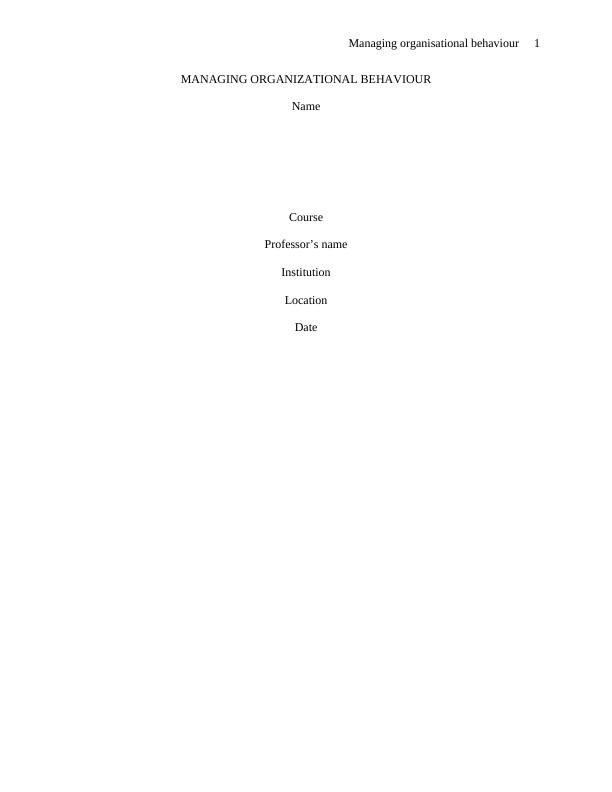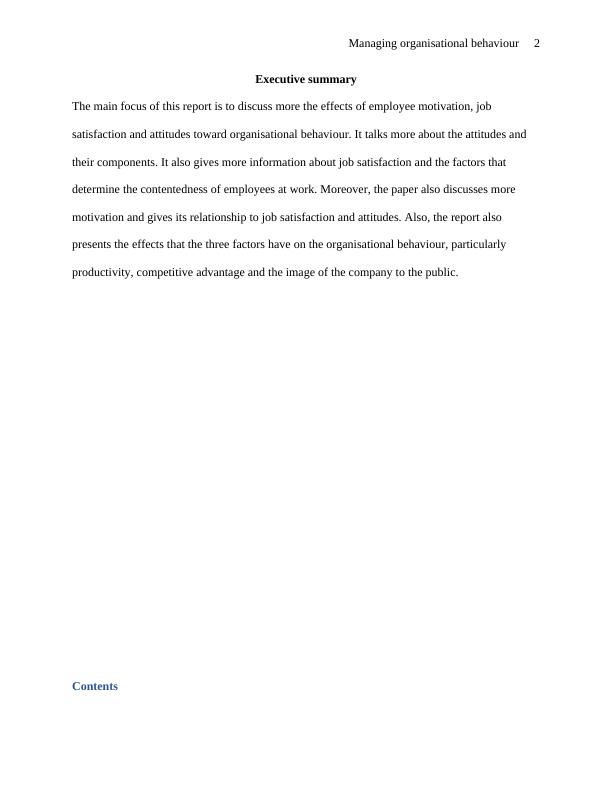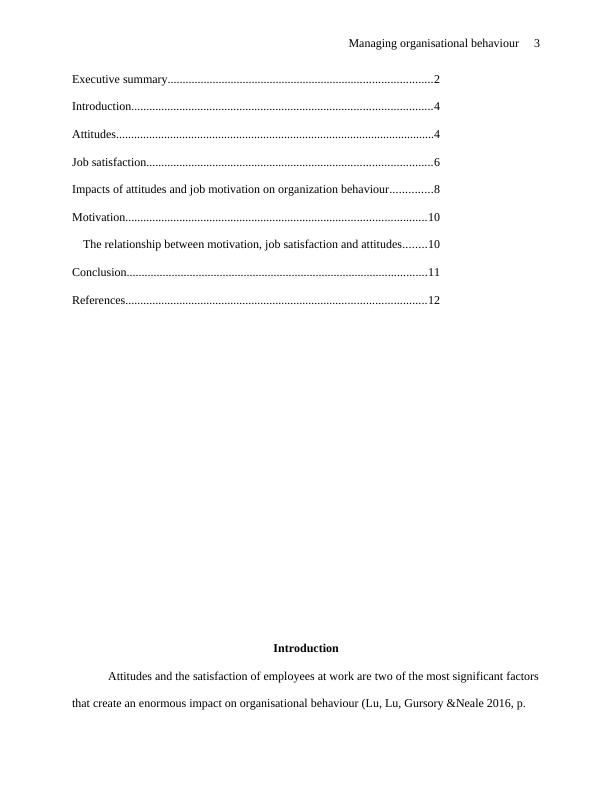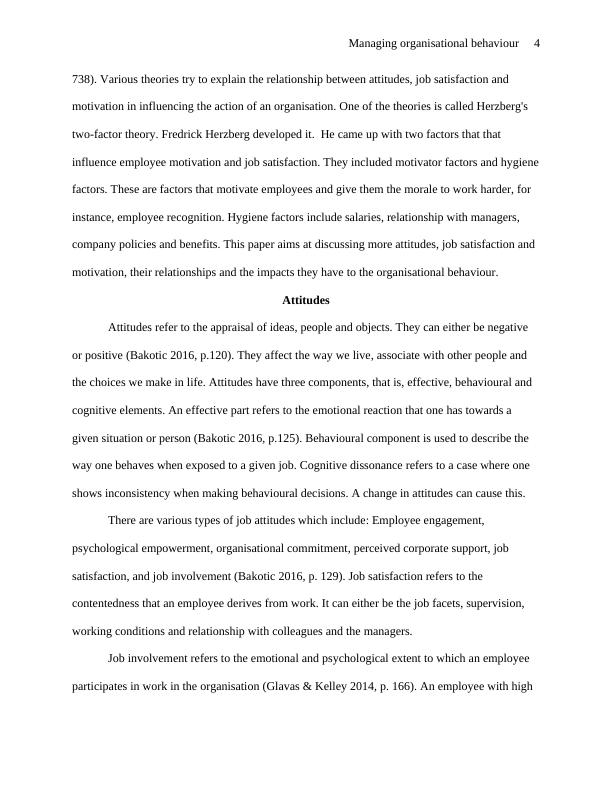Managing Organisational Behaviour: Effects of Employee Motivation, Job Satisfaction and Attitudes
This assignment requires evaluating the relationship between attitudes, job satisfaction, and motivation at work, analyzing their impact on organizational behavior. It also involves analyzing the impact of attitudes and job satisfaction on employee motivation and organizational behavior. The assignment should be written in report format, including critical analysis from relevant literature and research.
Added on 2023-05-30
About This Document
Managing Organisational Behaviour: Effects of Employee Motivation, Job Satisfaction and Attitudes
This assignment requires evaluating the relationship between attitudes, job satisfaction, and motivation at work, analyzing their impact on organizational behavior. It also involves analyzing the impact of attitudes and job satisfaction on employee motivation and organizational behavior. The assignment should be written in report format, including critical analysis from relevant literature and research.
Added on 2023-05-30
End of preview
Want to access all the pages? Upload your documents or become a member.




